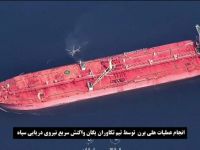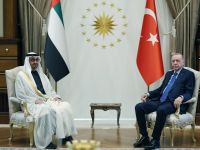UAE Ministry of Foreign Trade, Sharjah Chamber organise workshop on export development, rules and regulations

The UAE Ministry of Foreign Trade (MoFT) and Sharjah Chamber of Commerce and Industry (SCCI) have jointly organized a workshop on “Methods and Policies of Export Development, and Export Rules & Regulations in the New World Order”. The workshop, which was attended by export-oriented private sector companies from the UAE, was held on Wednesday (July 13, 2011) at the SCCI’s headquarters. The workshop was organised in line with the plans and programs of the Ministry, taking into consideration best international practices in export development at the firm level, as well as the recognition of relevant international rules and regulations. This will enable the private sector to take full advantage of export opportunities in target markets, and subsequently promoting the national economy and supporting the government’s strategic directions in achieving comprehensive and sustainable development.
Mahmood Sharif Mahmood, Director of Foreign Trade Policies, noted in his opening speech that the UAE Government’s top priority is to establish a competitive knowledge-based economy for the UAE, as outlined in the first Government's strategic plans launched in 2007 and in the second plan lunched in 2011 which covers the timeframe from 2011 to 2013. Moreover, he said that the government has developed strategic plans and initiatives and implemented programs and policies pertaining to export development and promotion of the country's position as a key player in global trade. These actions are all geared towards diversifying the UAE’s exports as well as its international trade partners, by supporting a much wider range of industries to increase their export capabilities. He also pointed out that the government drafted resolutions, laws, legislations and measures aimed at developing the export infrastructure, increasing production and export volumes, opening new markets for these products and improving the competitiveness of UAE exports.
Mahmood also pointed out that the growth of the export industry has resulted in a number of positive gains for the country, which can be summarized into four major factors. First, exports create new job opportunities in high performing export sectors. Secondly, exports are key in maintaining fiscal balance and stability of the local currency and exchange rates; exports help effectively address trade imbalances as the export industry is a critical source of foreign currency. The third factor relates to the role of exports in attracting domestic and foreign investment, given the reciprocal relationship between export industries and investment; a strong export industry helps attract more investments in value-added services and products, which in turn help generate greater business activity in the targeted sectors. The fourth factor is sustainability of growth rates; exports lead to sustained growth rates, this was reflected in the key indicators of sustainable development.
He added that given the benefits that result from the expansion of export activities, the UAE is keen to develop and implement export strategies with carefully scrutinize goals and perspectives, which is in line with the country’s strategy in achieving comprehensive and sustainable development, and in accordance with new trends and developments in international trade as well as the rules and regulations of the UAE’s trade partners. He further clarified that in developing export strategies and policies, an equally important precondition is the availability of relevant data and statistics about the performance of the UAE economy and on the inter linkages between the sectors , as the UAE continues to expand and diversify its export markets and increase trade volumes with these markets.
He also pointed out that by observing and analyzing the policies of export countries, especially in recent years, it became clearer that there is greater emphasis on macro policies that address issues such as export barriers, preferential and free trade agreements. He affirmed that the UAE has not overlooked such macro policies, but it should also be praised for paying greater attention to an effective factor in the policies of export development, policies that plays a vital role in developing export capabilities for specific industries by enhancing its competitiveness, this will create new opportunities to access different international markets by exporting competitive products.
Mahmoud Sharif noted that the workshop is being held in accordance with the operational plan for the current fiscal year.
He further explained that the workshop addressed two main themes; the first theme demonstrates firm level methods and policies to develop exports, specifically by shedding light on the factors affecting international marketing; role of the banking sector in the development of exports; methods of securing and guaranteeing exports; and export promotion incentives. The second theme tackled the issues of export rules and regulations in the new world order by highlighting the features of this system and its main trends, in particular it concentrate on the movement towards economic blocs; liberalization of international trade; globalization of the market and the importance of quality standards. It also explained methods of exports initiation; export promotion methods, and concluded with a description of the operational procedures for export.
Mr. Mohammed Ahmed Amin, Assistant Director General for Economic and International Affairs, SCCI, pointed out that the development of exports and domestic goods and the opening of new overseas markets, represents one of the major strategic objectives of the chamber, an objective which is also pursued by the government of UAE in general and the Emirate of Sharjah in particular. This is being achieved by launching initiatives, through diversification of activities and organizing and participating in events that help increase exports and contribute to satisfactory, progressive and ambitious growth rates.
He added: "The workshop on"Methods and Policies of Export Development, and Export Rules & Regulations in the New World Order", reflects an aspect of this work because of its immense importance in shedding light on the nature of foreign markets, within the framework of the global trading system, as well as presenting the requirements and mechanisms that help to develop exports. The ultimate goal is to enhance the competitiveness of the UAE with regard to export and investments."
Moreover, he also pointed to the importance of coordination between the Sharjah Chamber of Commerce and Industry and the Ministry of Foreign Trade. The benefits of this strategic partnership will help achieve common goals in order to serve the national economy and the private sector in particular. On this occasion, Amin extended an invitation to the private sector, to participate in internal and external promotional and consultation programs, which are organised and supervised by the ministry, and in coordination with the Federation of UAE Chambers of Commerce and Industry, the Chambers and there members.
Background Information
Sharjah Chamber of Commerce & Industry
Sharjah Chamber of Commerce & Industry was established by an Amiri decree issued in 1970 by His Highness the Ruler of Sharjah in order to effectively and vitally participate in the organization of economic life and the prosperity of its trade, industry and professions sectors on all levels and in cooperation with the concerned establishments and bodies and local departments.






